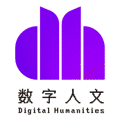Digital Humanities 2024 Special Issue: Digital Humanities and EducationCall for Papers
The journal Digital Humanities plans to publish a special issue in 2024 on ‘Digital Humanities and Education’. This Issue aims to explore the digital innovation and transformation of education and learning and the relationship between creativity in the era of AI and human development. Moreover, this special issue also aims to celebrate the milestone that digital humanities became a new major in Chinese Language and Literature in the academic discipline of Literature in April 2023 in China.
We cordially invite educators and researchers across disciplines and cultures to join this exciting journey to explore new discoveries by engaging in either or both of the two perspectives: What is, why, and how to develop digital humanities from the perspective of education and learning? And what is, why, and how to develop education and learning from the perspective of digital humanities?
These perspectives are inspired by the Chinese educational tradition which values the reciprocity between education and scholarship and also between teaching and learning: “To learn so as to know the limit, and to teach so as to know the difficulty. To know the limit so as to enable self-reflection, and to know the difficulty so as to enable self-strengthening.” (The Book of Rites: On Learning).
We offer this Special Issue as a forum to deepen understanding and develop partnerships in promoting digital humanities and education together. We welcome a wide range of topics, including but not limited to the following:
- How to use digital humanities in innovating education and pedagogies in a particular field, such as humanities and the arts education, general education, writing and communication education, method-based education (such as learning methods, research methods, thinking methods, etc.), and competence-based education (such as key competences, humanistic competences, digital competences, etc.), etc..
- Case studies of curricular and pedagogical development in digital humanities, or of database and resource development and application for teaching and learning support in digital humanities.
- Exploration of practical cases or empirical data about if and how one or various types of digital humanities tools or AI software and applications (such as ChatGPT and other AI-generated texts, images, and data analytics) can enhance or innovate teaching and learning.
- Critical evaluation of the impact of AI on talent cultivation in the traditional fields of humanities (such as literature, history, philosophy, education, art, etc.) or in interdisciplinary and emerging disciplines related to humanities, including on the nature and practice of creativity, innovation, entrepreneurship and other key educational goals.
- Comparison of “digital” versus “physical” forms of “humanities + education” in terms of their differences and problemisations, for example, new issues, concepts, models, and outcomes examined in relation to educational theories, purposes, spaces, methods and processes, etc.
- Other researches about innovations in teaching and learning practices, talent cultivation and new ways of education in digital humanities.
This special issue of Digital Humanities welcomes theoretical, methodological, experimental, and practical types of original academic research about digital humanities and education. If you are interested in submitting but have not yet had a completed manuscript, you can send a structured abstract to enquire via email (abstract 700-1000 Chinese characters or 500 English words). The abstract should include the rationale and context, research questions and methods, contents, research and/or writing plan, originality and limitation. The abstract or full-draft can be written in either Chinese or English, preferably about 15,000 Chinese characters or 6,000 – 8,000 English words in the main text. Please refer to the Digital Humanities submission guidelines for format of the draft.
Digital Humanities has a two-way anonymous peer review system. The manuscripts having passed the initial review go to the peer review process. The corresponding author shall be notified about the result of the initial review within TWO MONTHS of submitting the manuscript or abstract. The accepted abstract shall be invited for submitting a full paper, but the full-paper invitation may not guarantee a successful publication.
Please send your manuscript or abstract to: dh2020@tsinghua.edu.cn. Please include the full name, title, post, working organisation, email, phone, and mailing address of all authors. Please enquire about the handling of your manuscript through the above email.
Guest editors:
Zhong Zhou, associate professor, Institute of Education, Tsinghua University
Geng Hongming, lecturer, Center for Writing and Communication, Tsinghua University
Members of guest editorial committee:
Tang Keyang, professor, Future Laboratory, Tsinghua University
Jin Jianbin, professor, School of Journalism and Communication, Tsinghua University, and Tsinghua University Library, Tsinghua University
Zhang Wenxia, professor, School of Foreign Languages and Literature, Tsinghua University
Digital Humanities Editorial Office
16 August 2023
